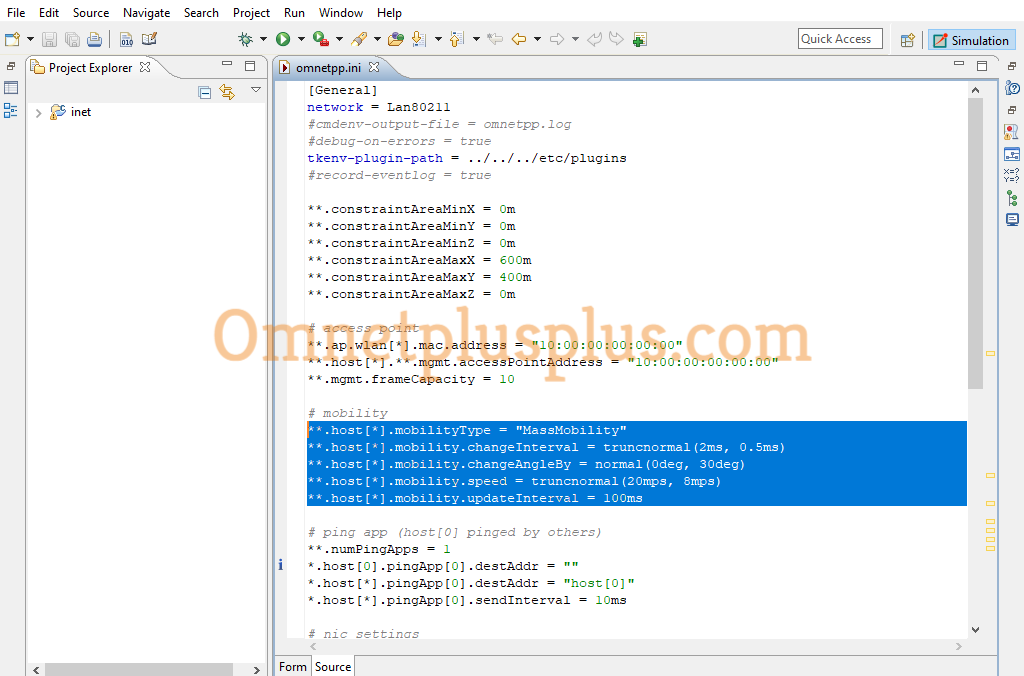Do you guys need the best explanation about OMNeT++ and research guidance based on writing OMNeT code? Then, this article will guide you because we have enlisted the step by step processes that are required.
Network Code in OMNeT++
In general, the network code is used to be stored in .ned file extension and the below mentioned code is functional to construct the network.
network Lan80211
{
parameters:
int numHosts;
**.mgmt.numChannels = 2;
submodules:
host[numHosts]: WirelessHost {
@display(“r=,,#707070”);
wlan[*].mgmtType = “Ieee80211MgmtSTASimplified”;
}
ap: AccessPoint {
@display(“p=213,174;r=,,#707070”);
wlan[*].mgmtType = “Ieee80211MgmtAPSimplified”;
}
radioMedium: Ieee80211ScalarRadioMedium {
@display(“p=61,46”);
}
configurator: IPv4NetworkConfigurator {
config = xml(“<config><interface hosts=’*’ address=’145.236.x.x’ netmask=’255.255.0.0’/></config>”);
@display(“p=140,50”);
}
}

Configuration Code in OMNeT++
Additionally, the code based on OMNeT++ is stored in .ini file extension and that is deployed to configure the simulation based on OMNeT++.
**.host[*].mobilityType = “MassMobility”
**.host[*].mobility.changeInterval = truncnormal(2ms, 0.5ms)
**.host[*].mobility.changeAngleBy = normal(0deg, 30deg)
**.host[*].mobility.speed = truncnormal(20mps, 8mps)
**.host[*].mobility.updateInterval = 100ms

To this end we provide the assurance that the research scholars can contact us for more information about the OMNeT++.
